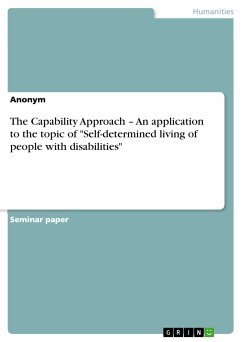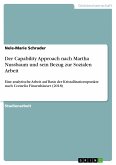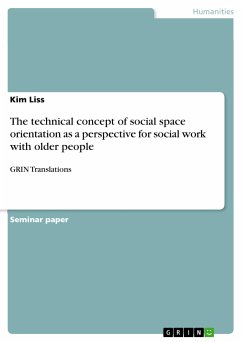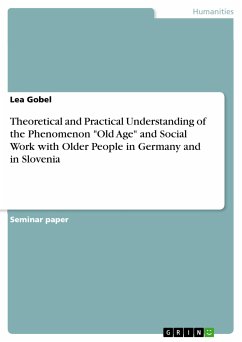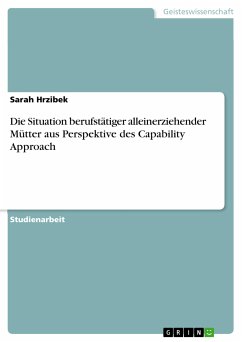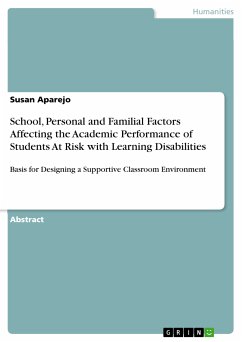Seminar paper from the year 2015 in the subject Social Work, grade: 1,0, University of Vechta (ISBS), course: Ethics of Social Services, language: English, abstract: The capability approach is about creating justice by enabling people to live a self-determined life. Is this theory suitable to enable people with disabilities to freely choose their housing options? This will be investigated in this paper. It seemed important to clarify which theories of norm ethics the capability approach is based on and from which it distinguishes itself. For the majority of the German population, self-determination has been taken for granted since childhood. This circumstance is probably due in particular to the stable democracy. Adults can decide relatively freely about work, leisure, living, partnership and finances. Of course, there are limits to each person's freedom of choice insofar as they come up against the limits of other people, or the financial or cognitive limits of their own person. In comparison, people with disabilities face more limits and external regulations. A large part of those affected cannot freely choose their workplace, but have to come to terms with what is offered. Many do not have the possibility to decide freely where and with whom they want to live. They also have to experience that partnerships and sexuality are prevented. Free time, the day, meals are planned and "pocket money" is allocated. Then there are the personal cognitive, mental or physical impairments that have to be compensated. The housing wishes of people with disabilities can usually only be implemented to the extent that there are vacancies, for example, in the residential home and in the residential group, or the need for support is rather low, so that outpatient residential care comes into question, or the relatives have enough resources to maintain the care. Most living arrangements involve a relatively high degree of dependence on other people by those affected. But to be dependent is to be externally determined. Innovative model projects for self-determined living are increasingly presented in professional journals. Can people with disabilities live self-determined lives?
